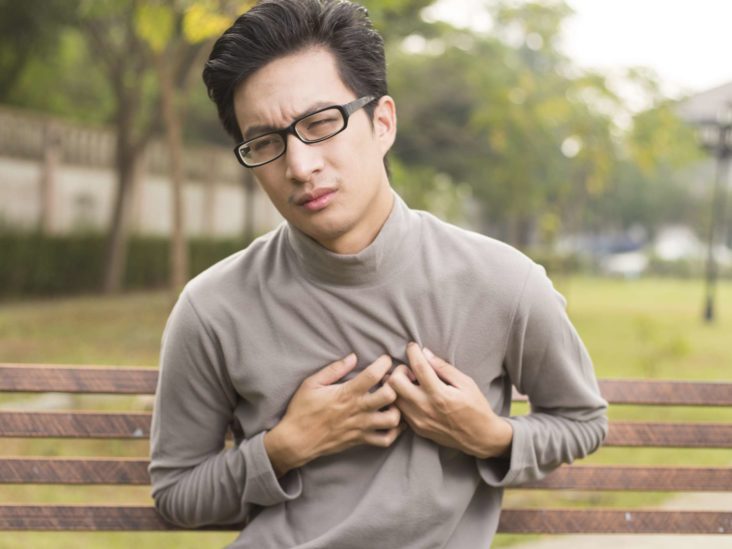


The symptoms of anxiety, however, can sometimes be terrifying. Worrying is normal, and it doesn’t necessarily mean that you have anxiety. To start dealing with anxiety, you should first know if you really are prone to it. If you are experiencing other symptoms like pain radiating to your arms and back, call emergency immediately.

Note: Chest tightness is a frightening sensation as it is associated with stroke and heart attack. While usually these strains are minor and can barely be felt, the people dealing with anxiety can feel them to a much greater extent. Muscle strains can also cause chest pain. When bloating occurs, the gut expands, causing pressure on other organs and the chest area. We already know that anxiety affects digestion, causing bloating and gas problems. The result of hyperventilation is a squeezing feeling around the chest area. Both situations are common to those who are experiencing an anxiety disorder. It occurs when a person breathes rapidly or is trying to take deep breaths too fast. Hyperventilation is the most common reason for chest pain and tightness. Tightness or pain in the chest can be caused by various reasons deriving from anxiety, including: In fact, any state of worry, even the minor ones such as visiting a dentist, can lead to anxiety. May it be worrying about getting enough food, providing for the family, or feeling terrified before having a public speech these are all potential anxiety triggers. Especially now in our fast-pacing world, responsibilities are becoming greater in numbers than ever before. Most likely, everyone has to deal with anxiety at least a few times in their lives. Causes of Anxiety and Chest Tightness Why anxiety?


 0 kommentar(er)
0 kommentar(er)
